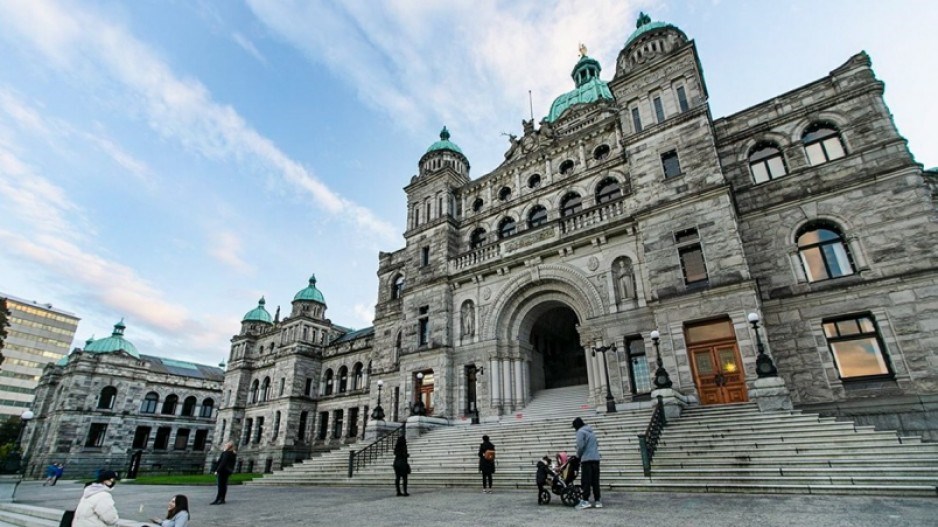Get ready for a spending spree by the B.C. government.
Premier David Eby says it’s his intention to spend the almost $6 billion surplus his government is currently sitting on, rather than let it expire in March and automatically go to debt repayment.
“Our focus will be on delivering services and supports for British Columbians in this really challenging time that they face,” Eby said in a year-end interview. “Not on debt repayment.”
It’s the most definitive answer yet from the premier on his financial plans for the next three months. And it sets up an unprecedented scenario in which the NDP government could funnel as much as almost $10 billion out the door by March 31 (including the $5.7 billion surplus, contingency funds and unallocated money stocked away in the budget).
“People are seeing these rising costs, and we need to provide supports to them to help defer some of those costs both in the short term and longer term,” said Eby.
Some of the funding will also go to fast-growing communities, which are seeing explosions of new residents through immigration to the province, he said.
“It’s putting a strain on schools, on health care, on amenities and so on. It’s all positive, and these are good signs of our success. But British Columbians need support around that.”
The NDP government was harshly criticized in August when it revealed in year-end financial documents that it closed the financial year with a $1.3 billion surplus. By law, any money unspent by March 31 each year automatically goes to pay down provincial debt.
Critics complained that $1.3 billion could have been better used to prop up the collapsing health-care system, provide rebates to British Columbians struggling with inflation or boost core services like education, welfare and disability payments.
Eby appears to have heard the backlash. As has his new finance minister, Katrine Conroy.
“My plan is to ensure that we continue to provide services to people in the province and if it means spending some of that surplus then that’s what we’ll do,” she said.
It’s a bad idea to spend so much so quickly, said Opposition BC Liberal leader Kevin Falcon.
“I have no doubt that he will announce billions of dollars more of spending, but I'm going to point out that that does not translate into better outcomes,” he said in a year-end interview.
“Look at health care, for example. They're always announcing more money to health care, and yet we get worsening outcomes. The ambulance system, they made a big splashy announcement about how they're going to hire all these people and get more cars and all the rest of it, and yet we've got worse outcomes in the ambulance service today.”
The rapid pace is also concerning, said Falcon.
“It is very difficult to responsibly spend that amount of money in such a short period of time,” he said. “It certainly wouldn't be strategic and it wouldn't be focused.”
Spending upwards of $10 billion in newly available cash in three months may be unprecedented in B.C. history – even during COVID-19. One challenge will be in how much of it is one-time money, and how much Eby builds into ministry budgets as part of ongoing operating spending for future years.
Eby hedged when asked if February’s provincial budget will be balanced, given private sector forecasts that have downgraded B.C.’s economic growth in 2023 due to a possible recession. He said it remains a priority that his government is “fiscally responsible” but noted that “our economy is facing some pretty major headwinds right now and projections have been very difficult for the experts.”
“It’s too soon,” the premier said, when pressed several times on whether the budget will be balanced.
“The challenge that we face right now is the projections from the economic council, with rising interest rates, global inflation and all the challenges we face have varied quite wildly and quite impacted our budget.
“I don’t think there was anybody that was expecting us to be looking at a $5 billion surplus right now. It’s a really unusual time. So we have to be responsive to conditions as they arrive.”
Rob Shaw has spent more than 14 years covering B.C. politics, now reporting for CHEK News and writing for Glacier Media. He is the co-author of the national bestselling book A Matter of Confidence, and a regular guest on CBC Radio.



